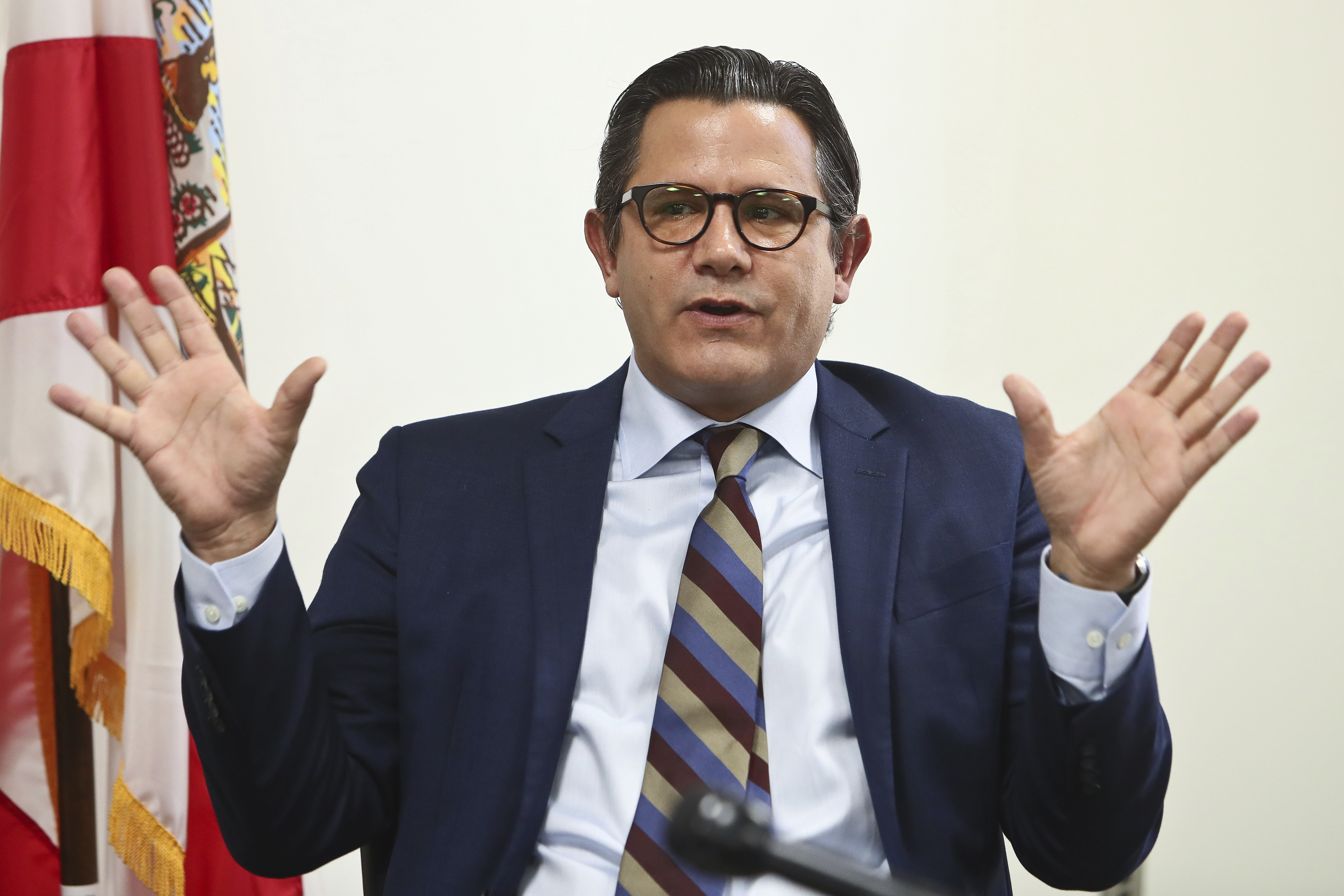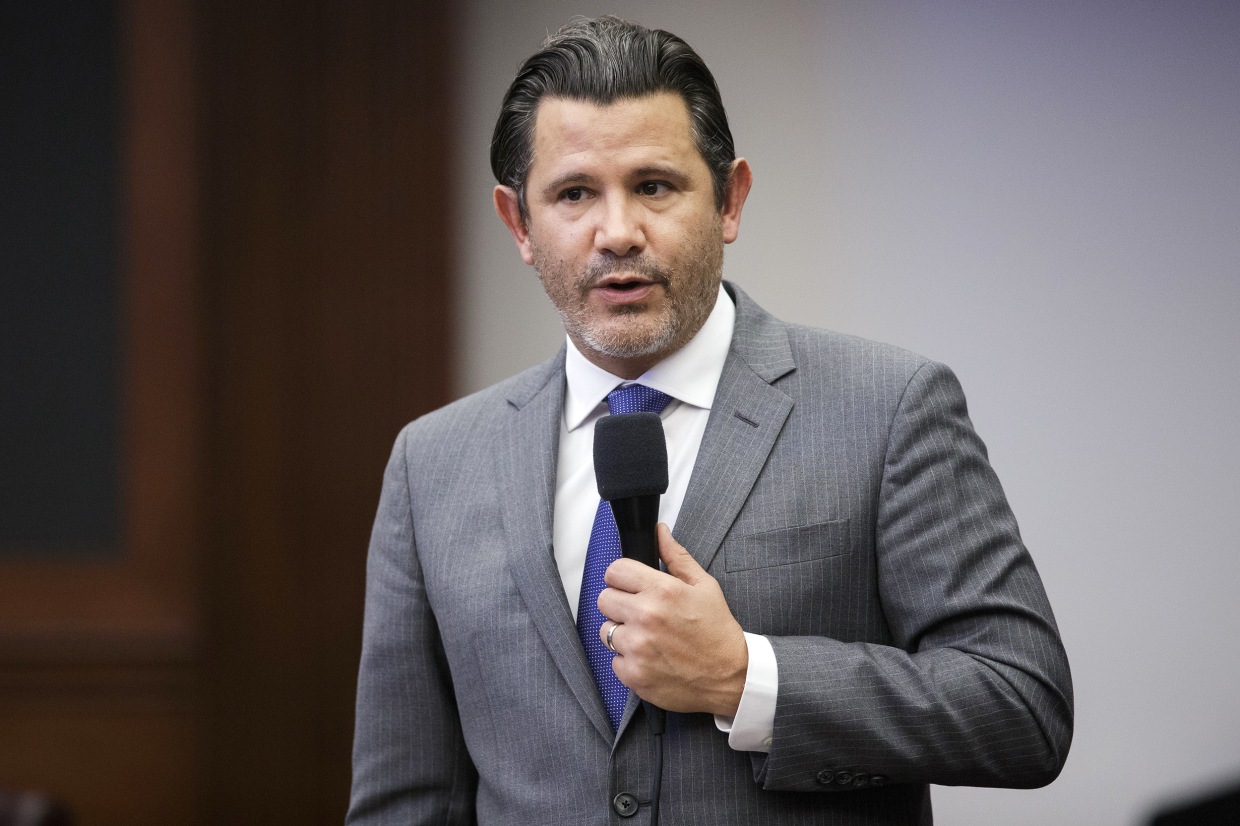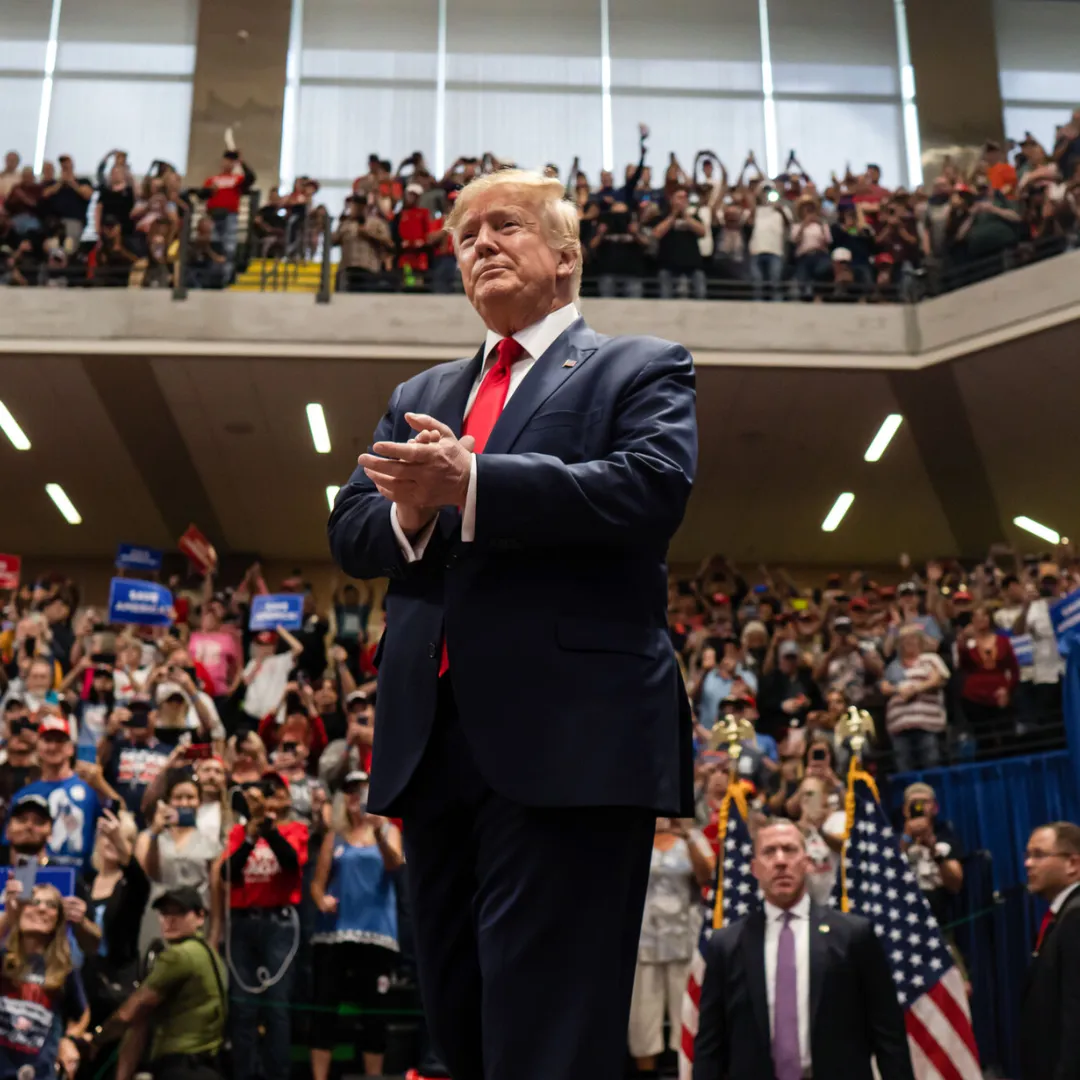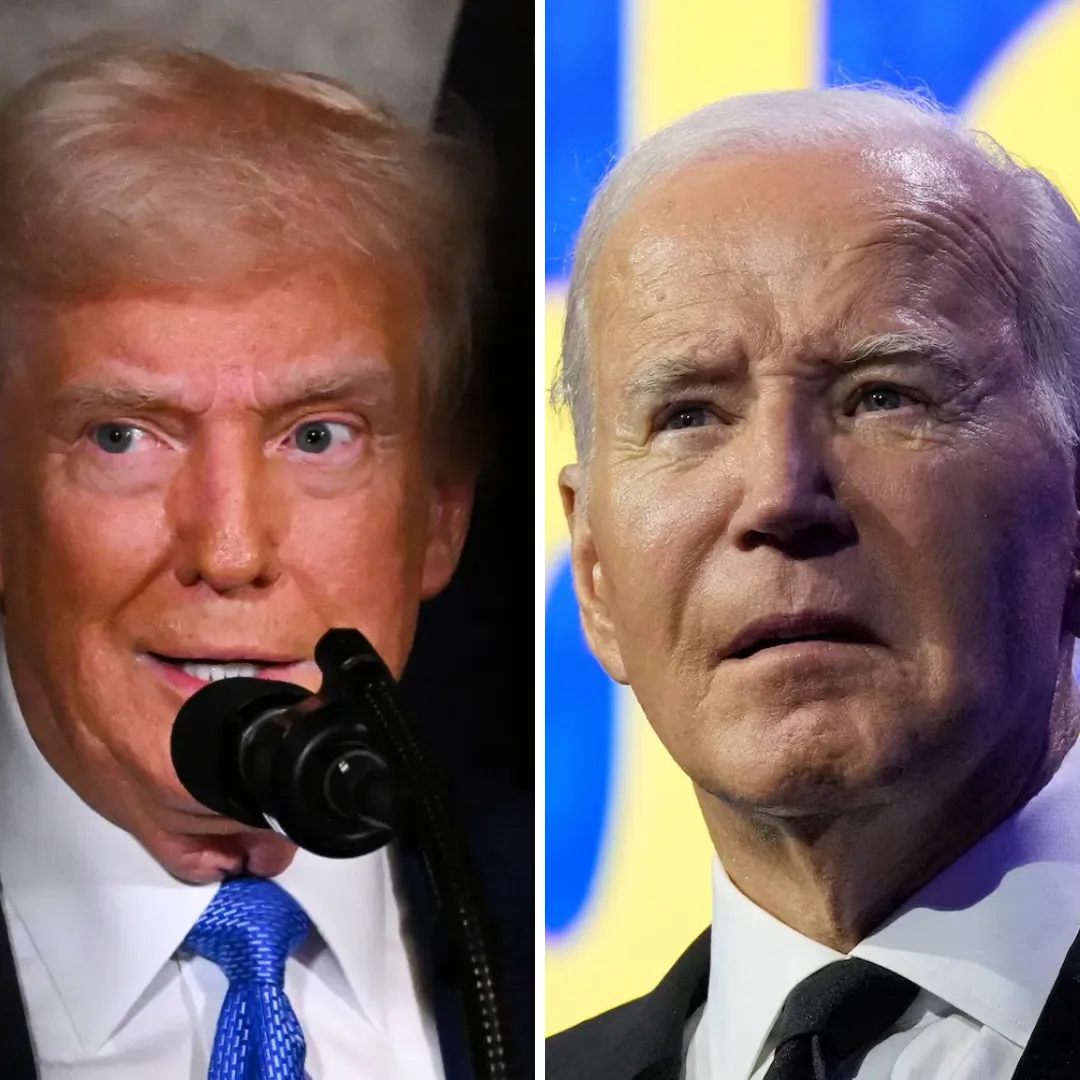
Florida Senate Minority Leader Jason Pizzo has provided further insight into his decision to leave the Democratic Party, expressing dissatisfaction with the party’s direction and lack of a coherent plan to address issues facing constituents.
In a recent interview on NewsNation’s show The Hill, Pizzo explained that his frustration stems not only from the party’s failures but also from his own efforts over the years to support a group he believes lacks both purpose and direction.
“I think mostly on myself for spending so many years raising so many millions of dollars and donating the same to try to artificially resuscitate, you know, a group or a clutch of people that really have no direction and have no purpose on how to solve things with sound policy,” Pizzo said on the show.
His comments reflect a growing frustration within the state party, where Pizzo believes that Democratic leadership has failed to take meaningful action or provide tangible solutions to pressing issues.
Pizzo’s departure from the Democratic Party marks a significant moment, as he becomes the third state lawmaker to leave the party in recent months. On Thursday, he announced his decision to formally change his party affiliation during a speech on the floor of the state Senate in Tallahassee.
“For today, I FedExed my voter registration form to change my party affiliation to no party affiliation,” he declared, adding, “The Democratic Party in Florida is dead. But there are good people that can resuscitate it, but they don’t want it to be me.” His harsh words have sparked discussion about the future of the state Democratic Party and the challenges it faces in rebuilding after a series of electoral losses.
The growing dissatisfaction within the Democratic Party has been echoed by other prominent figures. California Governor Gavin Newsom, rumored to be a leading contender for the Democratic presidential nomination in 2028, has voiced his own concerns about the party’s current state. In an interview earlier this week, Newsom said that the party had not yet fully understood the reasons for its setbacks in the 2024 election cycle.
“We have not done a forensic of what just went wrong, period, full stop,” Newsom said, emphasizing the need for self-reflection and introspection within the party. He added, “I don’t think it, I know it. I mean, to the extent that I’m marginally part of this party, I represent the state larger than 21 state populations combined, and I can assure you there’s not been a party discussion that I’m aware of that has included the state of California.”

Newsom’s remarks reflect the uncertainty surrounding the Democratic Party’s future. He expressed confusion about what the party currently represents and the direction it is heading. “I don’t know what the party is,” Newsom admitted.
“I’m still struggling with that.” His comments highlight a sense of division within the party and the difficulty it faces in navigating a fractured political landscape.
Pizzo also criticized the party’s focus on divisive issues, particularly social and cultural debates, while neglecting the concerns of working-class Americans.
“It’s the opportunity cost that’s lost by taking the bait on socially divisive issues, which are just simply loud distractions by the other side of the aisle, because of their inability as well, they have the capacity, they have the resources, but just the inability to be that are driven by lobbyists and special interests not to do what’s right for folks,” Pizzo explained.
He argued that the party’s focus on issues like “pronouns” has overshadowed the real concerns of voters, such as property insurance and public safety.
“My constituents, they want lower property insurance,” Pizzo said, highlighting the practical concerns that many working-class Floridians face. “They want safe for free. They don’t want to defund any of the police and they want to help cops, teachers, and firemen.”
His comments underscore the disconnect between the priorities of the Democratic Party leadership and the needs of everyday voters. Pizzo’s departure reflects his belief that the party is out of touch with the concerns of the electorate and is failing to offer meaningful solutions to critical issues.
The Florida Democratic Party has been struggling to recover from significant losses in the 2024 election cycle, and Pizzo’s resignation adds to the growing sense of disillusionment among state lawmakers. Democrats have been searching for a way to bounce back and regroup after Republicans gained control of the White House, the Senate, and the House of Representatives.

Some within the party argue that the leadership has failed to examine the root causes of these losses, focusing instead on external factors rather than addressing the internal challenges that led to the defeat.
The backlash against Pizzo’s decision has been swift. Florida Democratic Party Chair Nikki Fried responded to his resignation by calling him “one of the most ineffective and unpopular Democratic leaders in recent memory.”
In a statement, Fried criticized Pizzo for his perceived failures as a leader, accusing him of consistently disparaging the party base, starting fights with other members, and prioritizing his personal ambitions over the values of the Democratic Party. “Jason’s failure to build support within our party for a gubernatorial run has led to this final embarrassing temper tantrum,” Fried said.
However, Pizzo’s critics argue that his resignation reflects broader issues within the party, particularly the challenges of unifying a fractured coalition and addressing the concerns of a diverse electorate.
The Democratic Party has long struggled to balance the demands of its progressive base with the interests of moderates and working-class voters, and Pizzo’s departure underscores the difficulty the party faces in forging a cohesive agenda that appeals to all factions.
As Pizzo distances himself from the Democratic Party, he has made it clear that he is not joining the Republican Party. His decision to become an independent reflects his belief that the current political landscape is dominated by division and that neither of the two major parties is adequately representing the needs of the people.
Pizzo’s exit is part of a larger trend of state lawmakers and political figures who are increasingly disillusioned with the Democratic Party’s direction and seeking alternative paths forward.
The Democratic Party’s struggles are not unique to Florida. Across the country, Democrats are grappling with questions of leadership, ideology, and strategy. The party’s inability to recover from the setbacks of the 2024 election has led to calls for generational change and a new vision for the future.

Whether the party can overcome its internal divisions and chart a path forward remains to be seen, but figures like Pizzo are making it clear that the current trajectory is unsustainable.
As the Democratic Party confronts these challenges, it will need to address the concerns of both its base and the broader electorate if it hopes to regain its footing and remain competitive in future elections. Whether the party can find a way to unite its diverse factions and offer a compelling vision for the future will determine its ability to recover from the setbacks of 2024 and secure its place in the political landscape moving forward.



-1746381359-q80.webp)